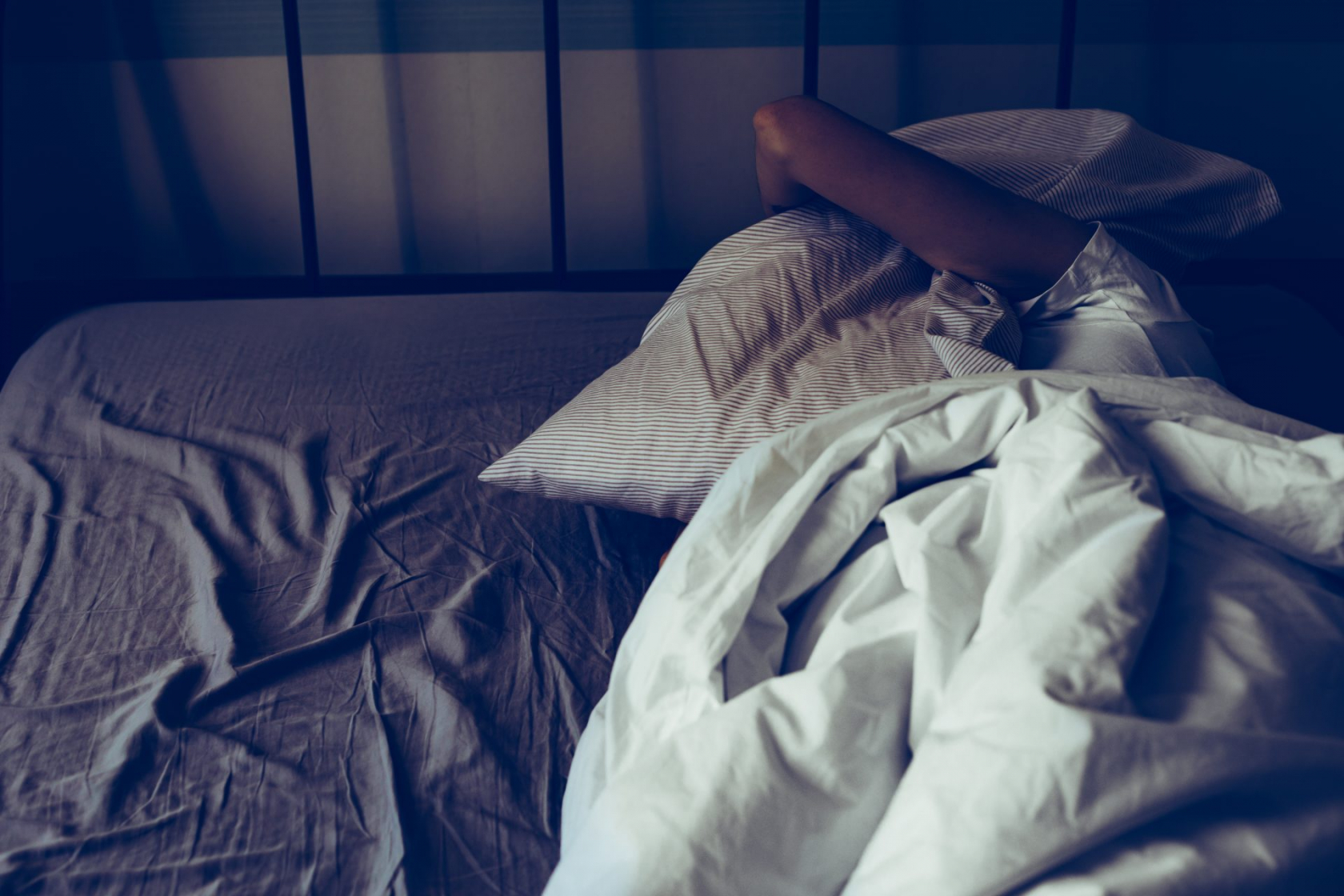How to get a good night’s rest when you’re a sensitive sleeper
Welcome to Stylist’s Sleep Diaries, where we’re taking a deep-dive into one of the most important (and elusive) factors in our day-to-day lives: sleep. To help us understand more about it, we’re inviting women to track their bedtime routines over a five-day period – and presenting these diaries to sleep expert Dr Nerina Ramlakhan for analysis.
In this week’s Sleep Diaries, a 28-year-old editor and sensitive sleeper finds out the secret to getting a better night’s rest.
A little about me:
Age: 28
Occupation: editor
Number of hours sleep you get each night: 5 hours
Number of hours sleep you wish you got each night: 7-8 hours
Do you grind your teeth/have nightmares: I have nightmares quite often – a couple a week
How much water do you drink on average per week: 5-6 glasses
How much exercise do you do on average per week: approximately 2.5 hours on a good week
Day 1
It’s a late arrival home for a weekday. After going for Thai food, bowling and drinking a few glasses of cheap white wine, my boyfriend and I get home at about 1am. We indulge in another cheeky glass of wine to catch up without our friends in earshot before jumping into bed just before 2am.
I don’t feel particularly drunk but merry. The downside of this, though, is that my boyfriend quickly falls into a noisy sleep while I fidget willing myself to get to sleep again. Unsuccessful, I reluctantly check my phone and see that it’s nearing 3am which gives me four hours before my alarm goes off.

Day 2
I wake up feeling groggy but am pleasantly surprised that the hangover is minimal. My anxiety has been pretty erratic these past few weeks and I’ve been experiencing panic attacks a bit more frequently so I’ve been trying to limit my caffeine intake. I give in today, though, and my boyfriend and I share a cafetière of coffee.
After work we watch a film and I fall asleep on the sofa for an hour or so before I drag myself up to brush my teeth at about 9:30pm and we get into bed to browse through properties on Rightmove for an hour.
I wake up at what I guess is about 1am as I can still hear people in the neighbouring flat walking around, but resist checking my phone to avoid winding myself up. I slip out of bed to go to the loo, return and spend about 30 minutes willing myself to sleep.
You may also like
“How long should it take me to fall asleep?” A sleep expert answers your questions
I wake up to my boyfriend shuffling around the room at 7am to get ready for the gym. He leaves, and I nap until he comes back at about 8am to give me a cup of tea in bed.
Day 3
No work this morning so everything feels pleasantly leisurely. We take a stroll to a café nearby for breakfast – a bacon, egg and cheese sandwich for me – before I make the journey back home (boyfriend and I don’t live together).
Dinner is at 8pm and I have pasta bake before taking myself to bed at 9pm (9pm!) to read a book. What felt like a few minutes turns into two hours and I put the book down and put on a sleep meditation on my Slumber app. Although it’s not always a solution to struggling to fall asleep, I find it helpful to have someone else’s voice rather than the one in my head to listen to while I concentrate on breathing.
I wake up at 2am, 3:30am, 6am and eventually get out of bed at 7:30am to have a green tea and listen to the radio.

Day 4
I have a much-needed pyjama day after a hectic few weeks of having to either work late or attend various events. I spend most of it mooching around between my bedroom and the living room and snacking on Babybels.
I eat a lunch of stir-fried veg and rice quite late in the day – about 3:30pm – so don’t consider dinner until about 9pm. I heat up some chicken I cooked probably too many days ago (it smells fine) to have with roast vegetables.
Bedtime ends up being 11pm. I try a new sleep story about a long train ride which I fall asleep to quite quickly. I wake up at 3am again, but resist the urge to pick up my phone, a book or turn on my bedside lamp. I manage to dose back to sleep roughly 30 minutes later, wake up again at 5:30am and dose until my alarm goes off at 6:45am.
You may also like
“What foods boost energy and improve sleep?” A sleep expert answers your questions
I don’t feel great, but I’ve felt worse. I have enough energy to get up, make a tea and write a list of what I need to do this week. An hour or so into the working day I find myself flagging and wishing I could crawl back into bed for a bit. I resist, though.
Day 5
A spontaneous trip to the theatre means that I end up skipping dinner (naughty, I know) and have a few glasses of prosecco over the course of the evening. I’ve felt on edge most of the day so a couple of glasses of bubbles with friends brings a wash of relief that I didn’t realise I needed.
In the Uber home, I start to resent the fact that it’s so late knowing I’ll not be able to get to sleep as quickly as I’d like to. I get home at midnight, heat up a plate of leftover chicken and vegetables and down a pint of water before crawling into bed just after 1.30am.
Feeling very self-defeating, I don’t bother with a sleep story or meditation. It doesn’t take me too long to fall asleep but I find myself awake again at 4am and in and out of sleep until my 7am alarm. Unsurprisingly, I feel awful, tired and irritable. It’s going to be a long day at work.
So, what does it all mean? A sleep expert offers her thoughts
Dr Nerina Ramlakhan, sleep expert and professional physiologist, says: “I have a lot to say here as I really want to help you. I feel that much of your anxiety, panic attacks and maybe even nightmares could be prevented or, at least, alleviated, with a few key changes.
“You say skipping dinner was ‘naughty’ but skipping breakfast is even naughtier with the symptoms you’re experiencing. I really want you to take a look at my five non-negotiables and especially pay attention to what I say about breakfast and caffeine. Your caffeine before breakfast habit is exacerbating your anxiety because of the way it is affecting your nervous system, especially as you seem to be a sensitive sleeper.”

Dr Nerina continues: “A high protein breakfast (and not just Babybels, nice as they are) within the first hour of waking could really start to make a difference to your mood. This would also improve your sleep efficiency and help you get back to sleep quicker when you wake during the night – which is totally normal as we all wake during the night.
“On this note, I really want you to stop checking the time during the night. Learning a breathing and gratitude practice could also help you to get back to sleep more quickly too. If you take all of this on board you could be feeling radically different in two to three weeks.”
If you would like to take part in Stylist’s Sleep Diaries, please email us at [email protected] with ‘SLEEP DIARIES’ as the subject. We look forward to hearing from you.
Lead image design: Ami O’Callaghan
Other images: Getty
Source: Read Full Article



